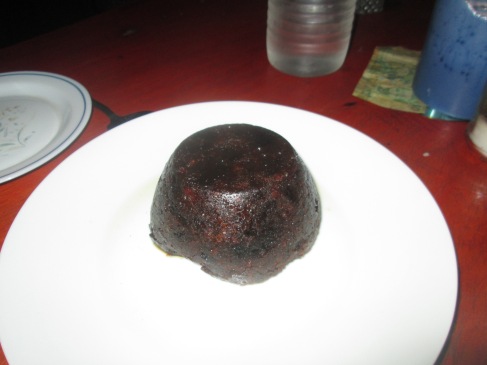One day during induction one of the female volunteers called me over and said “This country can get a bit much at times. Sometimes we just meet for tea and female company”. It was like that day in a film about school days where the popular girls agree to let the glasses (and in this case ridiculous sunhat) wearing new girl into the clique. Soon it became a gathering of European women, a weekly refuge from the male dominated environments we work and live in and a moment to stop looking out for every possible cultural faux pas.
As is the way with volunteers, women have come and gone from our little band but still, generally weekly and at least once a month, we try to meet up for a night of what has come to be known as European Women’s Forum. In our time we have pooled our resources to buy a bottle of wine or two, drunk tea and eaten biscuits while chatting into the small hours, shared files and photos across our hard drives. We had a Christmas party with treats sent by Helen, a returned EWF. We decorated a bar with posters and balloons for Janneke’s leaving do. And this week two members, Nicola and Ellie, celebrated their birthdays plus I had a Christmas pudding that needed eating. So we had a dinner at my house.
Originally I thought, “I’ll just steam the pudding” then decided that was far too dull. Then I thought a light noodle soup would suffice. But no, my friends have long lamented the lack of a roast dinner so, though I can’t do that, I opted for a lemon chicken pot roast with cubed chips as roast potatoes. We had no wine but everyone turned up having had tough days and wanted to share stories over tea and water so that was perfect. Ellie also came with cheese and biscuits and a box of frosting that was left over from her weekend birthday party. An excellent alternative to brandy butter, it was added to the menu.
I kept tasting the chicken and it was incredibly bitter. However, with a dash of mustard and sugar at the end it perked up. At that moment all the lights went out. We sat in the dark with candles and peered at our plates. We chatted about how much chicken should be eaten off the bone (most bones were picked clean), we shared stories of the day, and we swapped concerns and observations on our lives here. At least with no power you could see the blue flames licking up the burning pudding as I brought it in. By the end we had over eaten and talked for hours. Stresses were washed away with the dirty plates, and we knew more about each other. Birthdays were marked and friendship was marked too. I think everyone went away feeling happy and full. It was everything that our EWF is there for.








